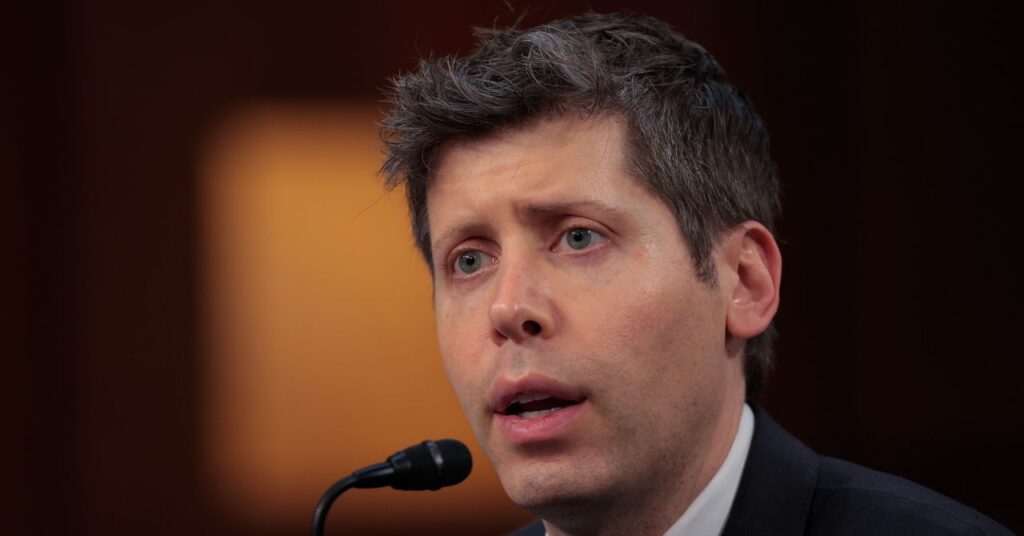Never mind the GPT-5 complaints; Sam Altman says he believes ChatGPT is on track to have more conversations per day than all human beings combined.
“If you project our growth forward, pretty soon billions of people a day will be talking to ChatGPT,” said the CEO of OpenAI during a dinner with journalists in San Francisco. “ChatGPT will be having more conversations, maybe, than all human words put together, at some point. I think it’s unreasonable to expect a single model personality or style to work for all of that.”
The remarks followed the chaotic launch of a long-awaited new flagship model, GPT-5, which some users felt had a less friendly and supportive personality. As part of the launch, OpenAI stopped offering users access to the prior model, GPT-4o. It quickly reversed its position after some users rebelled.
ChatGPT came out in November 2022 with little fanfare but quickly became the fastest growing tech product in history. The chatbot’s remarkable ability to mimic human communication and problem-solve sparked hope of finally building machines as clever as humans.
But Altman said that the company had misstepped with the latest release by failing to realize how the model’s change in tone would affect consumers. He noted more customization will be coming to ChatGPT in the near future.
“There will have to be a very different kind of product offering to accommodate the extremely wide diversity of use cases and people,” he said.
Asked if AI is in a bubble, Altman said “for sure,” but added that this hardly means that the underlying technology won’t be transformative. “When bubbles happen, smart people get overexcited about a kernel of truth,” he said. “If you look at most of the bubbles in history [like] the tech bubble, there was a real thing. Tech was really important, the internet was a really big deal.”
OpenAI will likely spend trillions of dollars on data centers alone in the “not very distant future,” Altman said. “And you should expect a bunch of economists to wring their hands and be like, ‘oh, this is so crazy, it’s so reckless’ … And we’ll just be like, ‘you know what? Let us do our thing.’”
Asked where he plans to find those trillions of dollars, Altman hedged. “I suspect we can design a very interesting new kind of financial instrument for financing compute that the world has not yet figured out,” he said. “We’re working on it.”
At the same time, Altman said that he expects some big AI investments not to pan out, just as some companies’ investors lost out when internet infrastructure was being built out during the dotcom boom. OpenAI raised $40 billion at the end of March to fund its quest to reach AGI, bringing the company’s valuation to $300 billion. If the company goes through with a rumored stock sale, which would allow employees to cash in their shares of the company, it could further inflate OpenAI’s valuation to $500 billion.
“Someone is going to lose a phenomenal amount of money, we don’t know who, and a lot of people are going to make a phenomenal amount of money,” he said. “And my personal belief, although I may turn out to be wrong, is that on the whole, this will be a huge net win for the economy.”


